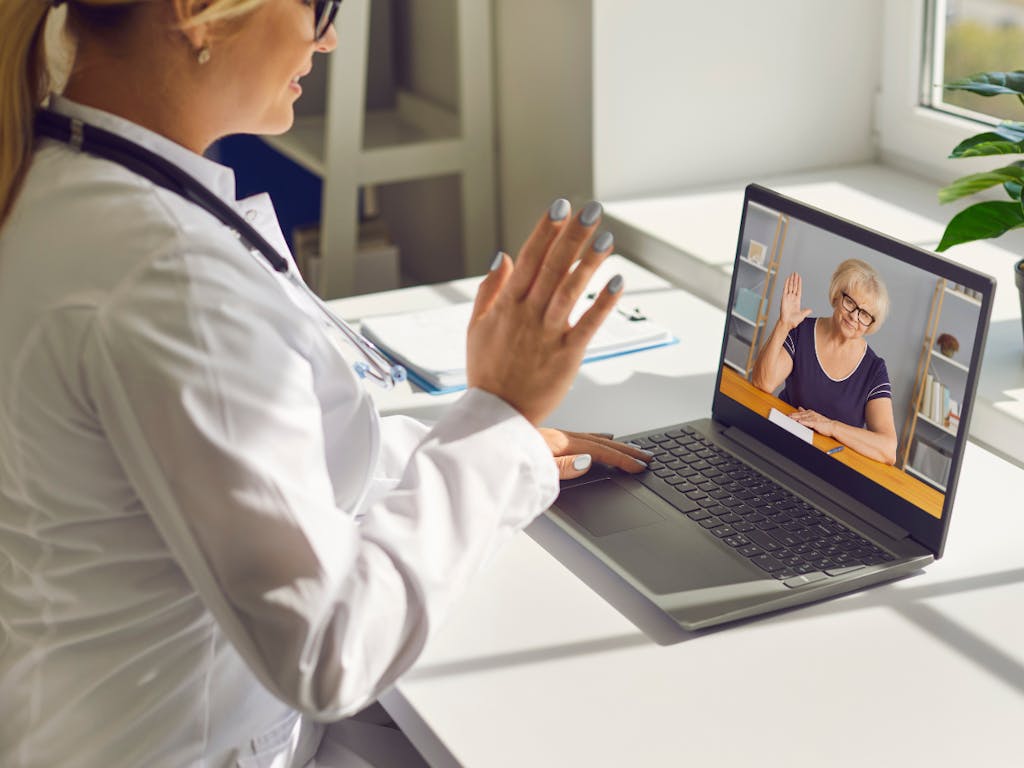
- Blogs
- How to Find an NP Clinical Preceptor

How to Find an NP Clinical Preceptor
Navigating through nurse practitioner (NP) programs is no small feat, and when it comes to securing an NP clinical preceptor, many NP students find themselves overwhelmed.
While some NP programs assign preceptors, others place this responsibility squarely on the student’s shoulders.
This can cause much stress for these students as clinical hours are required to graduate and take NP certification exams.
Regardless of your program’s approach, understanding how to find the right NP clinical preceptor is critical for your success.
The Role of an NP Clinical Preceptor
A clinical preceptor serves as a mentor and educator during your NP program, bridging the gap between classroom learning and hands-on patient care.
Preceptors guide you in developing essential skills such as diagnosing, prescribing, and managing patient care. Their role is invaluable, offering real-world experience that prepares you for independent practice.
Some NP programs handle preceptor placement for their students. If your program does this, take full advantage of their resources.
However, if you’re required to find your own NP clinical preceptor, you’ll need a strategic approach to secure someone who fits your learning needs.
Understand Your NP Program’s Requirements
Before diving into your search, it’s crucial to understand your program’s clinical requirements. Here are some questions to ask of your program when you are starting to plan clinical sites:
- Specialty Areas: Does your program require rotations in specific areas, such as pediatrics, women’s health, or geriatrics? Most programs have some sort of hour requirements for different specialties.
- Preceptor Qualifications: Does your preceptor need to have a certain level of experience, certifications, or credentials? Are you only able to be precepted by nurse practitioners, or are you able to be precepted by physician assistants (PAs) and physicians as well? Knowing these requirements can help you narrow down your search.
- Location: Are there geographic restrictions or preferences for your clinical site? Some programs will have radiuses of >100 miles, which can mean long commutes.
- Hours: How many clinical hours must you complete in each rotation?
- Documentation: What paperwork or agreements are needed between your school and the preceptor? Are there evaluations throughout the semester your preceptor must complete?
Having clear answers to these questions will streamline your NP clinical preceptor search and prevent miscommunication.
Leverage Your School’s Resources
Many schools offer resources to help NP students secure clinical preceptors. Even if they don’t provide direct placement, they might maintain a list of preceptors who have worked with the program in the past.
Contact your clinical coordinator or academic advisor for guidance. Connecting with former students can also be a great way to find local preceptors. They can offer insights, suggest contacts, and ensure you’re meeting program requirements.
Some programs also have affiliations with local clinics, hospitals, or health systems. Explore these partnerships, as they might open doors to preceptors who are familiar with your school’s curriculum.
Build Your Professional Network
Networking is one of the most effective ways to find a clinical preceptor. Here’s how to expand your reach:
1. Tap into Your Network
If you’ve worked as a nurse, reach out to colleagues, supervisors, nurse practitioners, or physicians you’ve collaborated with in the past. They might be willing to precept you or connect you with someone who can.
2. Join Professional Organizations
Organizations like the American Association of Nurse Practitioners (AANP) or state-specific NP associations often have directories or forums where you can find preceptors. Membership fees are often well worth the networking opportunities and resources.
3. Use Social Media and Online Platforms
Platforms like LinkedIn, Facebook groups, or even Reddit can be valuable for connecting with potential preceptors. Search for groups specifically geared toward NP students and nurse practitioners.
4. Attend Local Events
Attend conferences, seminars, or community health events to meet healthcare professionals in your area. Face-to-face interactions can leave a lasting impression and open doors.

Approach Potential NP Clinical Preceptors Professionally
Once you’ve identified potential NP preceptors, reaching out in a professional manner is key. Here are the steps to follow:
1. Craft a Strong Introduction
When contacting a potential preceptor, either in person or via email, be concise yet detailed. Include the following:
- Your name and educational background
- The NP program you’re enrolled in
- Specific clinical requirements (e.g., hours, specialty)
- Why you’re interested in learning from them
- Your contact information
2. Highlight Your Strengths
Let them know what you bring to the table. Emphasize your nursing experience, eagerness to learn, and dedication to patient care.
3. Be Flexible
Recognize that preceptors have busy schedules. Be willing to accommodate their availability and offer to handle as much paperwork as possible to simplify the process for them.
4. Follow Up
If you don’t hear back after a week, send a polite follow-up email or call. Persistence shows initiative, but avoid being overly pushy.
Think Outside the Box
If traditional routes aren’t yielding results, consider alternative approaches to finding an NP clinical preceptor:
1. Target Underserved Areas
Clinics in rural or underserved areas may be more open to accepting students, as they often face staffing shortages. This can also provide you with unique learning experiences.
2. Shadow First
If a potential preceptor is hesitant, ask if you can shadow them for a few days. This allows them to see your enthusiasm and professionalism, which might lead to a full preceptorship.
3. Consider Non-Traditional Settings
Don’t limit your search to primary care clinics. Non-traditional settings such as specialty practices, urgent care centers, retail health clinics, and telehealth services can also provide valuable clinical experiences.

Overcoming Common Challenges in the NP Clinical Preceptor Search
Challenge: Lack of Response
Many healthcare providers are inundated with requests from students. To stand out:
- Personalize each communication.
- Show genuine interest in their work or practice.
- Follow up respectfully.
Challenge: Geographic Limitations
If you live in an area with limited options, consider:
- Expanding your search radius.
- Exploring telehealth preceptorships.
- Relocating temporarily for rotations.
Challenge: Financial Costs
Some preceptors charge fees for their time. If this isn’t feasible for you:
- Negotiate with your program to cover the cost.
- Look for scholarships or grants.
- Explore free preceptor match options.
Making the Most of Your NP Clinical Rotation
Once you’ve secured an NP clinical preceptor, maximize your learning experience:
1. Prepare Ahead
Before starting, review common conditions and treatments relevant to the specialty. Familiarize yourself with the clinic’s workflow and patient population.
2. Set Clear Goals
Discuss your learning objectives with your preceptor. This ensures both parties have aligned expectations.
3. Be Proactive
Take initiative during clinicals. Ask questions, seek feedback, and volunteer for hands-on tasks.
4. Show Gratitude
Remember that precepting is often unpaid and adds to a provider’s workload. Show appreciation through thank-you notes, small gifts, or verbal acknowledgment.

Whether your program provides preceptors or you’re tasked with finding your own, being proactive, professional, and resourceful will set you up for success.
Remember, this is more than a requirement—it’s an opportunity to build lasting professional relationships and gain invaluable real-world experience.
By leveraging school resources, networking, and creative strategies, you can navigate this process with confidence.
And, when you find the right preceptor, embrace the learning journey wholeheartedly, knowing it’s shaping you into the skilled and compassionate provider you aspire to become.